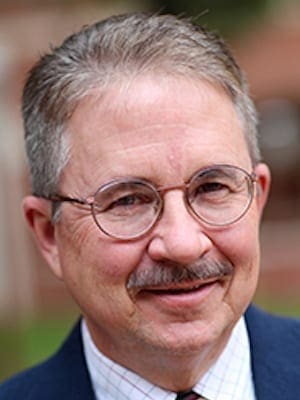I understand liberation theology (in all its forms) as “protest theology” and an attempt to focus Christian thought on pressing issues of social injustice and oppression.
I cannot accept it insofar as it is a “replacement theology” sweeping away all other theology. Nor can I accept it insofar as it is a theology done solely “from below” – from experiences of oppression.
These are the dangers I see in liberation theologies, but not equally in all of them.
As much as I embrace egalitarianism – total equality of women and men – I struggle with feminist theology insofar as it elevates “women’s consciousness” as defined by feminist theologians to a status of a source or norm for Christian belief equal with or even above Scripture.
I am very uncomfortable with a radical “resymbolizing” of historic Christianity based on one group’s experiences of oppression by others. That seems to me to be Rosemary Radford Reuther’s agenda and that of some other leading feminist theologians.
I am also uncomfortable with placing “praxis” ahead of or even alongside of “reflection” (theory).
I think deep involvement in liberating social justice on behalf of the oppressed must be guided by sound interpretation of Scripture, tradition and reason.
With all of liberation theology, I worry about a tendency to put experience ahead of those in terms of reconstructing Christianity.
At the root of all liberation theologies is a postmodern rejection of objective, universal reason – even any objective, universal interpretation of Scripture that arises from dialogue between the advantaged and disadvantaged peoples.
I agree that disadvantaged, oppressed people groups must be involved in interpretation of Scripture and tradition on equal footing with the advantaged, and that people involved in oppressing the weak, the disinherited of the earth, ought to be excluded from such interpretation of Scripture and tradition.
One problem I have encountered in my attempts to dialogue with liberation theologians is a certain attitude on many (not all) of their parts that only they have a right to determine the direction of the task of reconstruction of theology.
They assert that they have a “privileged insight into God” because of their experience of being oppressed and that I, as an advantaged white man, cannot speak into that conversation because I am automatically an oppressor – simply by virtue of enjoying white male (and North American) privilege.
My problem with that is not “hurt feelings” (of being excluded) but worry that even the oppressed can distort theology and need to take into account everyone’s perspectives and not only their own.
One result of liberation theologies is a deep division between people.
When I go to the American Academy of Religion meetings (this year in San Antonio just before Thanksgiving), I find people involved in liberation theologies not very interested in dialogue.
They tend to group together and exclude others who they think haven’t experienced their particular form of oppression.
What I see coming out of some of these special interest groups’ meetings sometimes worries me (for example, about heresies).
Insofar as liberation theologies are protest and prophetic additions to basic orthodox Christianity, I endorse them.
Insofar as liberation theologies become replacement theologies – radically resymbolizing God, for example as “Gaia” or Christ as only a human liberator, I worry about them.
And I worry about them insofar as they shun all criticism; even they need to listen to other voices than their own.
My own attitude toward liberation theologies can be summarized as cautiously accepting, cautiously critical, always using Scripture, tradition, reason and experience as my guides (with Scripture having primacy) in deciding where to agree and where to disagree.
Roger Olson is the Foy Valentine professor of Christian theology and ethics at George W. Truett Theological Seminary in Waco, Texas. He is the author of numerous books, including “Counterfeit Christianity” and “The Story of Christian Theology.” This article is edited from a longer version that first appeared on his blog. It is used with permission.
Roger Olson is the Foy Valentine professor of Christian theology and ethics at George W. Truett Theological Seminary in Waco, Texas. He is the author of numerous books, including “Counterfeit Christianity” and “The Story of Christian Theology.”

